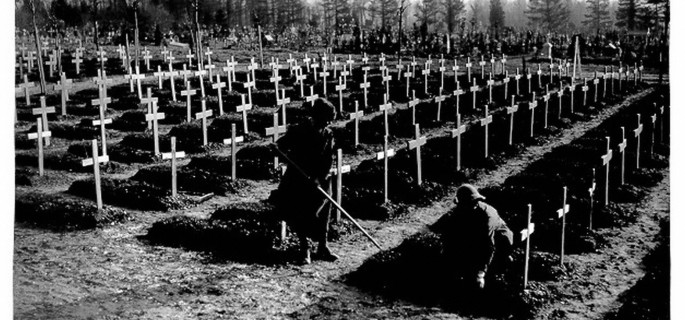Thanks Austria!

Commentary by Michael Owens
Austria’s war declaration against Serbia, 99 years ago today, led to a total rebuilding and restructuring of Germany and Europe - but it needed to be done.
On July 28th, 1914, the Austro-Hungarian Empire declared war on Serbia, setting in motion a chain of events which still reverberate today. It has always been one of the most infamous dates in European history. Today, after time and healing, the beginning of the end of the old order, brought about by this chain of events, has led to a unified Europe, and has made Germany one of the world’s leaders and top destinations for non-Germans to call home.
“War is an ugly thing, but not the ugliest of things; the decayed and degraded state of moral and patriotic feeling which thinks nothing worth a war, is worse. A man who has nothing which he cares more about than he does about his personal safety is a miserable creature who has no chance at being free, unless made and kept so by the exertions of better men than himself.” -John Stuart Mill
So was the prevailing thought then throughout most of Europe, if not the world. Imperialism and exploitation of lesser countries abounded. It was a race to the top by Europe’s largest and most powerful countries.
The results of the first World War, and the even bitterer second World War were ghastly. They should not be trivialized or diminished in any way. Hundreds of millions of people were, and to this day still are, affected by those two wars and their treaties.
But from the ashes a new Germany was born, and with it, its cotangent, Europe.
When one travels to Munich today they are struck by the fact that this place, this former petri dish of German fascism, has reinvented itself into a land of multiculturalism and tolerance. It may not be perfect. It is constantly striving to become even better. But the feeling on the streets is mostly one of inclusion, inquisitiveness or even appreciation for its diversity.
And to those evil people who dreamt of a pure Aryan society, we can be grateful for the fact that Munich, along with many other German cities, ranks consistently as one of the best places on earth to live. This is precisely because they are exactly the opposite of what the Nazis envisioned. They are places where people of different religions, skin color, or sexual persuasion can and do co-exist and add to the fiber of Germany’s society.
It would have been better if so many people had not had to suffer in Europe during the two world wars. Some wounds today may even seem as raw as they were then. But through their suffering, and Europe’s complete destruction, a new, better coexistence between countries was formed. Certainly, we must never forget those who gave so much; but in their memory, we should be thankful for what we here in Europe have today.





 Euro Converter
Euro Converter